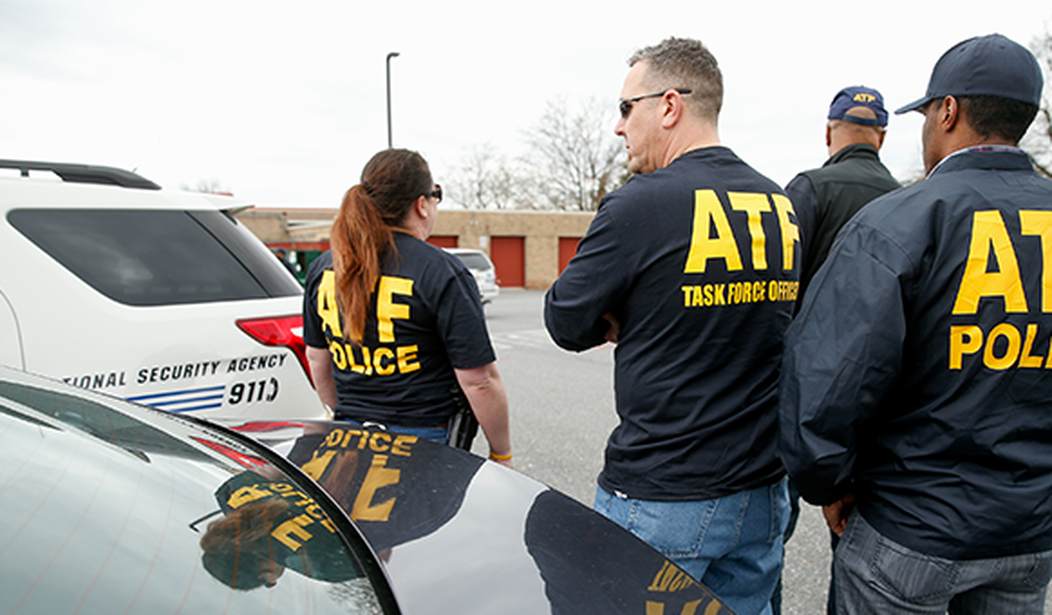The ATF's rule classifying forced reset triggers has been struck down by a federal judge in Texas, striking another blow to the anti-gun executive overreach of the Biden/Harris administration. In a ruling on Monday, U.S. District Judge Reed O'Connor granted summary judgment to the National Association of Gun Rights, which sued the ATF over the rule last August.
In his ruling, O'Connor held that the Bureau of Alcohol, Tobacco, Firearms, and Explosives went well beyond its statutory authority in promulgating the rule by "expanding [the] definition of machinegun and subsequently classifying FRTs as machineguns." There were several "key facts" that led O'Connor to his conclusion.
(1) the ATF made a final determination to classify FRTs "as machineguns" (2) the trigger moves forward into its reset state and is depressed to release the hammer from its sear surface for every round fired, (3) the trigger in an FRT-equipped firearm must reset after every round fired, and (4) a shooter who attempts to prevent the reset by holding the trigger in a fully depressed position will cause the weapon to malfunction.
These facts can be drawn from the administrative record alone and demonstrate that an FRT-equipped firearm must function for each and every round fired. The live testimony during the preliminary confirmed the lack of any such dispute regarding the material facts.
In other words, just like with the ATF's ban on bump stocks, the agency tortured the English language in order to reach its conclusion that a forced reset trigger, which allows for just one round to be fired with every function of the trigger, is the same as a machine gun that will continuously fire so long as the trigger is depressed.
As statutory interpretation makes clear, a single function of the means what it says: a single function of the trigger. It does not mean a single pull by the shooter or some analogous motion. In fact, the word "pull" is not found anywhere in the statutory definition. The only place "pull" exists is in the ATF's broadened regulatory definition interpreting the statute.
O'Connor went on to state that "pull" and "function" are not synonymous. A "pull" of the trigger cites action on the part of the shooter, while a "function" of the trigger relates solely to the mechanics involved in discharging a round. The ATF decided to play fast and loose with their definitions, but O'Connor didn't let them get away with their games.
The judge vacated the ATF's rule completely, rendering it unenforceable across the nation. The DOJ's next step will be appealing O'Connor's order to the Fifth Circuit Court of Appeals, asking them to overturn the district court judge's decision or, at the very least, put his ruling on hold while their appeals continue, which would allow the ATF to continue enforcing its rule.
For now, however, the agency is prohibited by O'Connor's order from initiating or pursuing criminal prosecutions for the possession of forced reset triggers as well as any civil proceedings against companies making and selling the triggers, at least based on the erroneous claim that they're "machineguns". The agency is also forbidden from destroying any triggers that were turned over to the ATF after the agency sent "notice letters" to gun owners who had previously purchased one. The scope of the injunctive relief doesn't apply nationwide, but O'Connor explicitly stated that vacating the rule entirely does achieve "the same effect here as a nationwide injunction".
This is another big win for gun owners taking on the administrative overreach of the Biden/Harris White House. Congratulations to the National Association of Gun Rights for their victory. I just hope the Fifth Circuit (and ultimately the Supreme Court) will agree to uphold O'Connor's decision when the time comes.









Join the conversation as a VIP Member